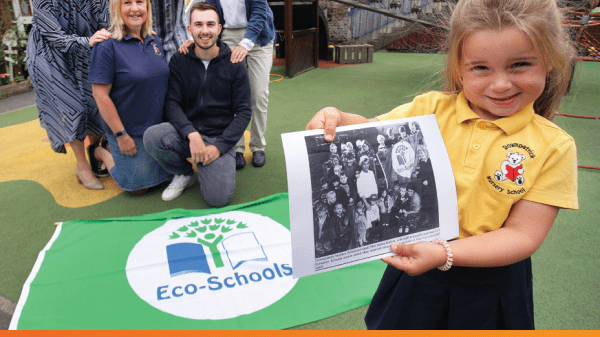Eco-Schools Celebrates 25 Years!

By Pramod Sharma, Senior Director of Education, Foundation for Environmental Education
We felt the milestone of 25th year of the Eco-Schools programme is an opportunity to reflect and tell our story. The story is a story of change that has impacted everyone who has come in contact with the programme and every interaction has helped develop the programme as we see it today. This realisation made us title the publication Changing Together!
The Eco-Schools programme has been engaging young people in taking positive actions that transform them for life. Over the years the programme has grown to have an outreach of around 20 million students in 59000 schools in 68 countries. It is just not an economic model to lower costs but also a humanistic model that places the students and stakeholders at the centre of the process of change towards sustainability that is connected to the real issues in their communities. The programme is a testament to a good environmental education and education for sustainable development programme that has been able to demonstrate its effectiveness in different contexts. The strength comes from the way it was conceptualised – a process of child-centred and child lead pedagogy symbolised by seven steps that can be adapted and contextualised by teachers around the world, the process ensured making a positive difference every day along with a focus on long term impact.
The publication is divided into two sections. The first section tells the story of how the Eco-Schools was conceptualised, its history and evolution. The section also describes the Seven Steps that is one of the most recognised aspects of the programme. The Seven-Step process is the basic framework that guides an Eco-School to plan and implement the learning journey. The steps are intended to be flexible enough to accommodate any school context and environmental theme. The section also has a chapter on a literature review of more than 68 research reports from multiple countries.
The second section tells the story of the development of the programme in member countries. The presentation has details of basic information of the country, the status of environmental education in terms of national legislation K12 curriculum and professional development. We have the programme at different stages of evolution and maturity in different countries and a reflection of different stakeholders mirror it.
We hope Changing Together would be a good resource for both researchers and practioners and inspire more schools globally to join the movement!
Pramod Kumar Sharma
Senior Director of Education
